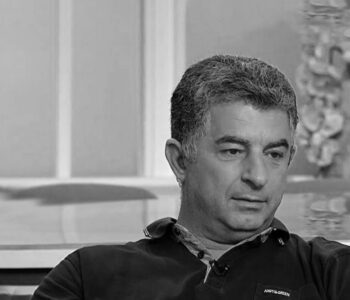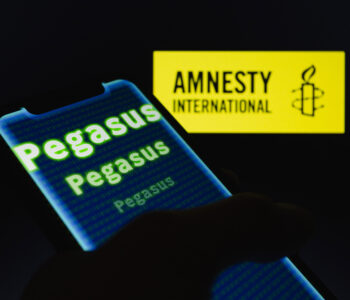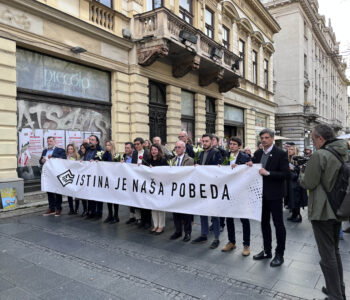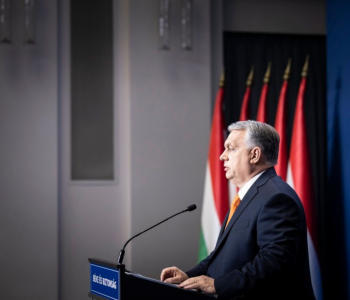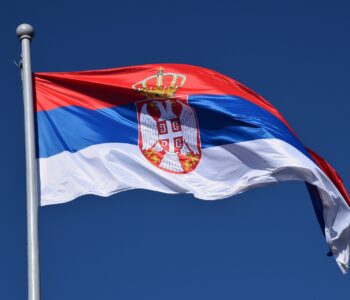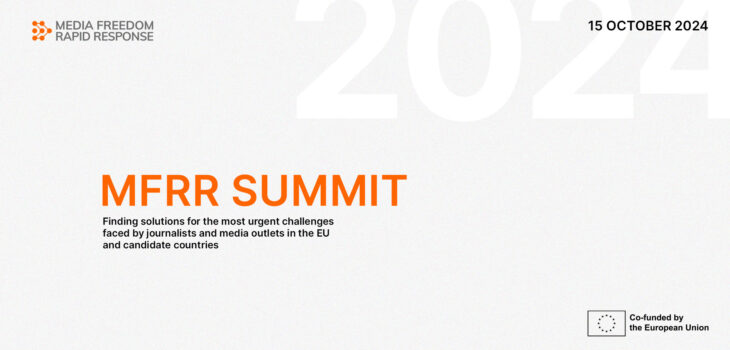
The Media Freedom Rapid Response (MFRR) Summit, taking place on 15 October 2024 at the Residence Palace in Brussels, will address the most pressing challenges faced by journalists and media outlets within the EU and candidate countries. The event will feature a series of panels discussing topics such as editorial independence, media capture, safety threats to journalists, and legal challenges like “foreign agents” laws. With a focus on finding practical solutions, the summit will bring together experts, journalists, and media advocates from across Europe, including a special interview on the plight of Ukrainian journalists.
Welcoming Remarks
09:00 – 09:05 CET
Video Welcoming Message
09:05 – 09:10 CET
Keynote
09:10 – 09:30 CET
Panel 1: Editorial independence of public media service providers
09:30 – 10:30 CET
For many EU and candidate-countries, independence of public service media is under threat. Ever more governments have demonstrated a trend of distorting public service media into state propaganda organs, making political appointments to the management and manipulating the content of public media production in order to serve power-holders’ political interests. This panel will focus on discussing the core challenges public service media faces with important case studies from Italy, Poland and Romania. The recently adopted European Media Freedom Act should provide some pressure for urgent change.
Speakers:
- Marina Popescu, President, Median Research Centre
- Roman Imielski, first deputy editor-in-chief of Gazeta Wyborcza
- Anna del Freo, Executive Committee member, Federazione Nazionale Stampa Italiana
Moderator:
- Renate Schroeder, Director, European Federation of Journalists
Panel 2: Media capture and the tools the European Media Freedom Act (EMFA) has to counter it
10:45 – 11:45 CET
This panel of leading editors from central Europe will explore the threat posed to journalism by the spread of media capture and the extent to which the European Media Freedom Act can combat it. As policy makers and media practitioners prepare to bring national legislation into line with the Act, the consequences and impact are coming into sharper focus. Public Service media independence, transparency of ownership and conflicts of interest, regulatory independence, media pluralism tests, and an end to the abuse of state advertising are just some of the measures being addressed. Will governments do the bare minimum required by the EU, or will they take the opportunity for more ambitious reform? And will the EU have the political will to challenge governments who ignore the principles the Act enshrines?
Speakers:
- Velislava Popova, Chief editor, Dnevnik.bg
- Beata Balogová, Chief Editor, SME
- Robert Čásenský, Chief editor, Reportér
Moderator:
- Oliver Money-Kyrle, Head of European Advocacy, International Press Institute
Panel 3: Safety of journalists: growing physical and online threats against journalists in Europe
13:00 – 14:00 CET
Journalists in Europe face a growing array of challenges and threats that put at stake not only their physical safety, psychological well-being, and the success of their work, but also that of their colleagues and loved ones. Bringing together highly experienced journalists and researchers from Germany, Italy, and Slovakia, this panel delves into the nature of the main risks of the journalistic profession, builds on individual perspectives, and moves toward a holistic view of journalist safety as a fundamental right and precondition for healthy democratic life.
Speakers:
-
Patrick Peltz, Feindbild Study Researcher, European Centre for Press and Media Freedom
- Domenico (Mimmo) Rubio, Organised Crime Investigative Journalist
- Peter Hanák, Journalist, Aktuality.sk
Moderator:
- Dimitri Bettoni, Editor and Researcher, CCI/Osservatorio Balcani e Caucaso Transeuropa
Panel 4: Safety of journalists: safety initiatives to counter threats against journalists
14:15 – 15:15 CET
While the number and intensity of threats against journalists is rising in Europe, in many EU countries and countries-candidates law enforcement, governmental organisations, and civil society work together in order to try to address these threats in the most efficient and coordinated manner through safety of journalists initiatives. This panel will focus on such national-level collaborations with the goal of achieving better safety of journalists, examining both its successes and challenges.
Speakers:
-
Tamara Filipovic, General Secretary, Independent Journalists’ Association of Serbia
- Selma Ali, Advisor, PersVeilig
- Dr. Ezio Gaetano, Senior Executive of the State Police and Security Expert at the Italian Embassy in Paris
Moderator:
- David Diaz-Jogeix, Senior Director of Programmes at ARTICLE 19
Special interview: Ukraine – Journalists in captivity
15:45 – 16:15 CET
Since the start of the full-scale invasion, Russia has committed around 600 crimes against journalists and media in Ukraine, including illegal detentions and abductions of media representatives. According to the Institute of Mass Information (IMI), since the beginning of the Russian-Ukrainian war in 2014, more than 100 Ukrainian journalists have been held hostage by Russia. Maksym Butkevych, Serhii Tsyhipa, Iryna Danylovych, Rustem Osmanov, Aziz Azizov, Viktoria Roshchyna, are among at least 30 media workers currently in captivity.
How can Europe influence the release of illegally imprisoned journalists? What do we know about Russian captivity from those who have been freed? How is Ukraine advocating and working towards the release of hostages?
Interviewee:
-
Anzhela Slobodian, Journalist and Former Prisoner of a Russian torture chamber
Interviewer:
- Andreas Lamm, Interim Managing Director, European Centre for Press and Media Freedom
Panel 5: “Foreign agents’ law”: How to balance the principles of transparency against potential abuse of the rules?
16:30 – 17:30 CET
The proposal for a Directive on transparency of interest representation carried out on behalf of third countries (‘foreign agents law’) is part of the EU’s much touted Defence of Democracy Package. As media freedom and free of expression organisations we have strongly opposed the Directive in its current form. But if the European Commission proceeds, is there a text that we can embrace? With member states already enforcing their own versions, can the EU produce one that balances the principles of transparency against potential abuse of the rules?
Speakers:
-
Lia Chakhunashvili, Executive Director, Georgian Chapter of Journalistic Ethics
- Márton Kárpáti, CEO, Telex
- Ena Bavčić, Lead Researcher, Digital Rights Programme, Balkan Investigative Reporting Network (BIRN)
Moderator:
- Mark Dempsey, Senior EU Advocacy Officer, Article 19
Closing remarks
17:45 – 18:00 CET
Andreas Lamm, Interim Managing Director, European Centre for Press and Media Freedom
